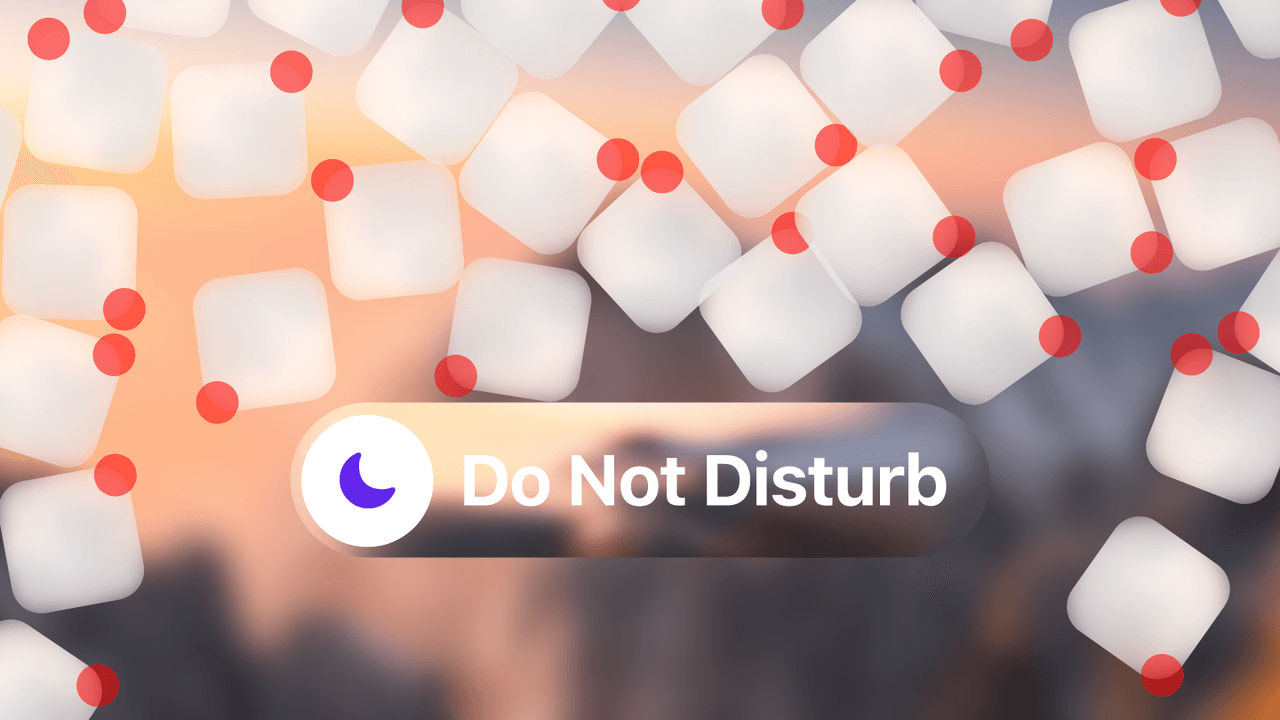Earlier this fall I grabbed drinks with a friend and got a glimpse into their phone. Not in an invasive way; I simply clocked that every time someone liked their photo dump on Instagram, the New York Times judged something fit to print, and a bird flew by their Ring camera, their phone vibrated and lit up, sending a little notification to their screen. That was two months ago. And I’m still haunted by the image. Nobody should live like that. Which is why, this holiday season, I have some advice: Set your phone to Do Not Disturb.
Embracing Do Not Disturb—which I would argue is Apple’s best innovation since the iPhone itself—means no breaking news chyrons, no distracting noises, no screen lighting up unless you specifically ask it to.
There’s a simple reason why no one should subject oneself to a phone notification: You will likely see whatever you need to see sooner than later, regardless of whether a little sound goes off or your screen illuminates to notify you. According to one 2025 study by Reviews.org, the average American looks at their phone 205 times per day. If, let’s say, you’re awake for 16 hours, that’s roughly once every 4.9 minutes. Statistically speaking, you’re likely to see any text, email, or DM you get within those five minutes anyway! Your phone is by your side throughout the entire day—according to the same Reviews study, 65% of Americans even use it on the toilet—so why the need to have it constantly barking at you?
For anyone who might be unfamiliar, Do Not Disturb is a feature in your phone’s settings that, if toggled on, silences alerts. With it on, I feel free to move about the world with my digital shackles comfortably loosened, rather than clamped around my neck. No longer does my phone pop off when I’m trying to relax, demanding consideration like an attention-starved child. Now, my whole existence is stillness. A study published in February 2025, which blocked participants’ access to mobile internet (i.e. the thing that makes smartphones “smart”) for two weeks, supports this. Its participants reported improved overall mental health, a newfound ability to sustain attention, increased social connectedness and sleep, and a heightened feeling of self-control. I myself can attest that, as a staunch Do Not Disturber for many years, the unperturbed beatitude it affords has changed my entire life.
How anyone can sustain a group-chat barrage—with upwards of 50 messages flooding in within minutes, sending your pocket, handbag, or desk into persistent vibration mode—is totally beyond me. Yet we’ve all seen that person: the dude in the movie theater whose alarm is going off during a key plot point, the family member who spends an entire holiday meal looking at internet slop, the person on public transportation whose phone makes noise for 18 minutes of a 20-minute commute.

